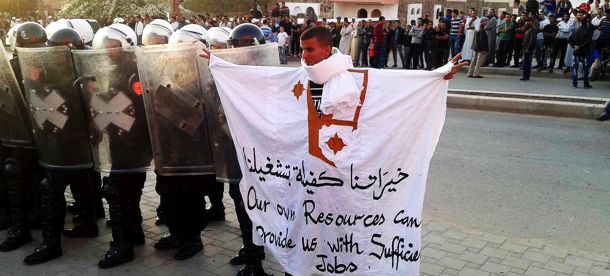
Dozens of Saharawis demonstrated in Smara, occupied Western Sahara, against marginalisation in their wealthy homeland. Several are said to be injured.
The Moroccan government is managing the natural resources in Western Sahara as if the territory were Moroccan. It is not. No state in the world, nor the UN, recognise the Moroccan sovereignty claims over the territory.
The people of the territory has the right to self-determination over their own land, and the right to, themselves, choose how their resources should be managed.
In Smara, occupied Western Sahara, a demonstration took place on 14 April 2016 calling for that right to be respected, and for the Saharawi people's right to work. One banner reads "Sahara is a rich land, but Saharawis are poor people". Another underlined how the Saharawis are not benefiting from the EUs partnerships with Morocco in the occupied territory.
A 09:23 minute long video has also been made from the demonstration. Download that video here. 03:00 A Saharawi is holding a poster "Sahara phosphate for Saharawis..."
One of the persons who took part in the demonstration told WSRW that the demonstration culminated by police chasing the demonstrators down the side streets of the main avenue.
"Security forces intervened violently. As a result of this, there were many injuries", WSRW was told.
WSRW were given the names of 24 people who were allegedly injured, but has not sought to verify the veracity of the injuries.
Download the images for high resolution versions.
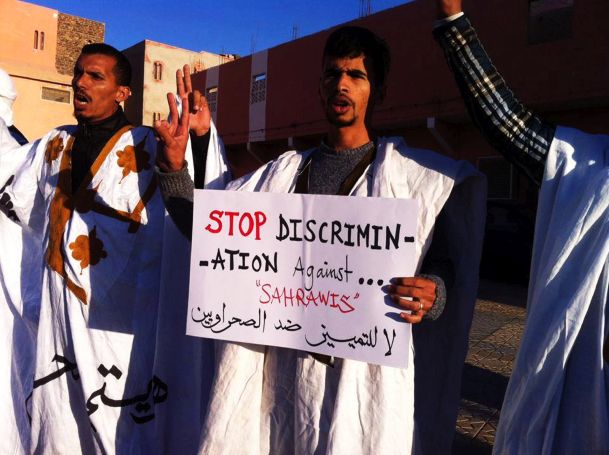

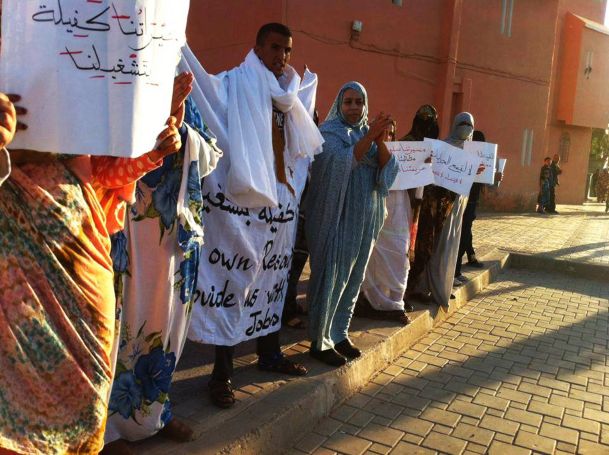
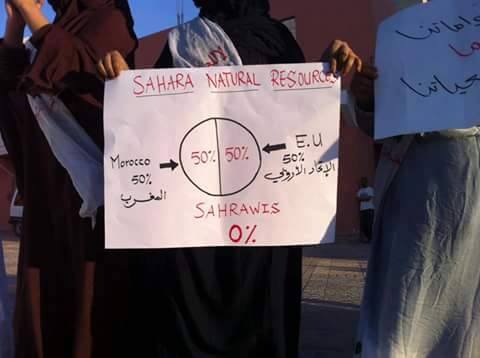
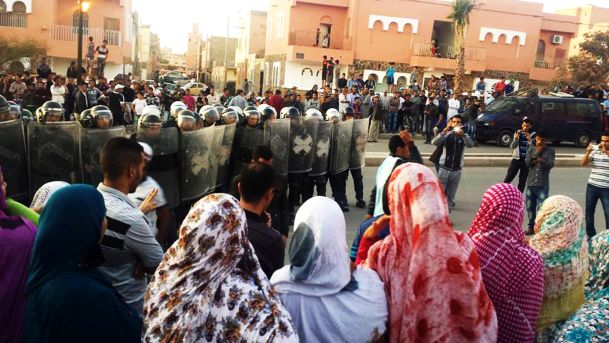
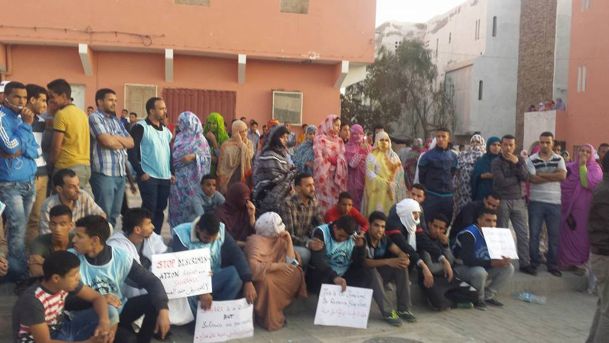
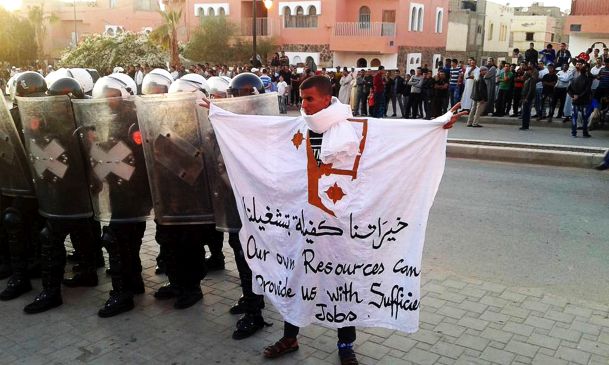
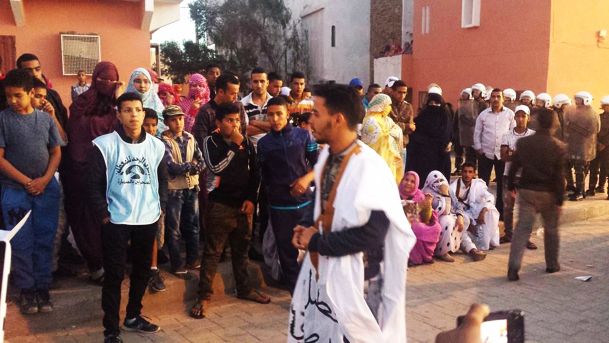
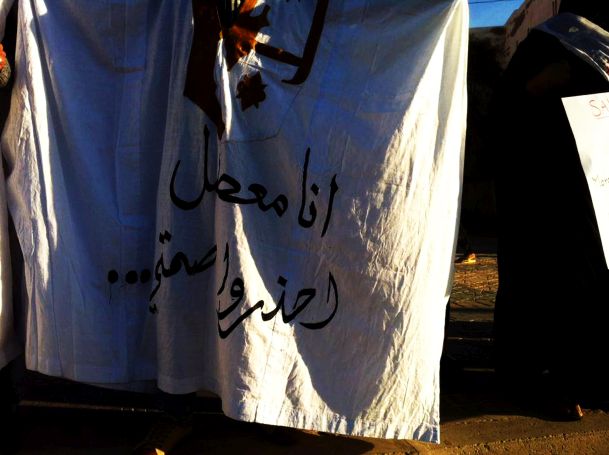
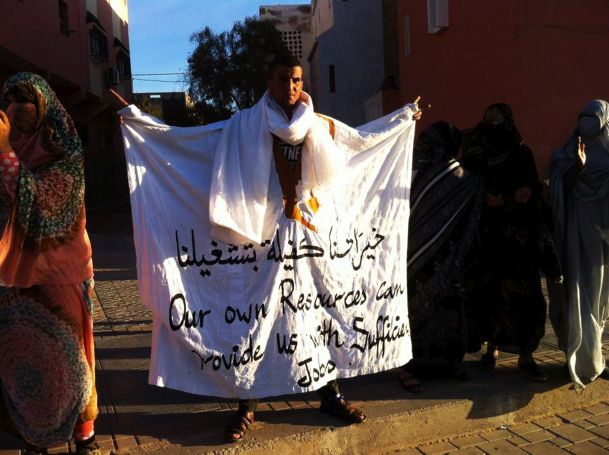
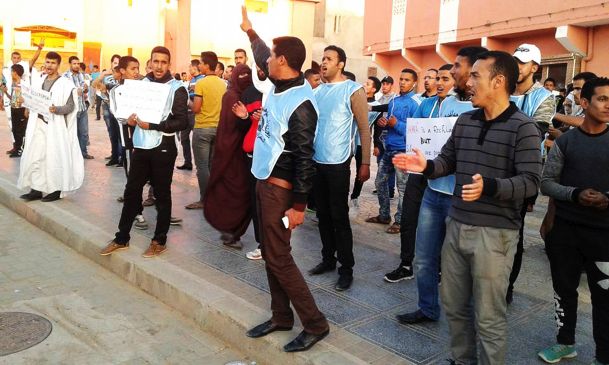
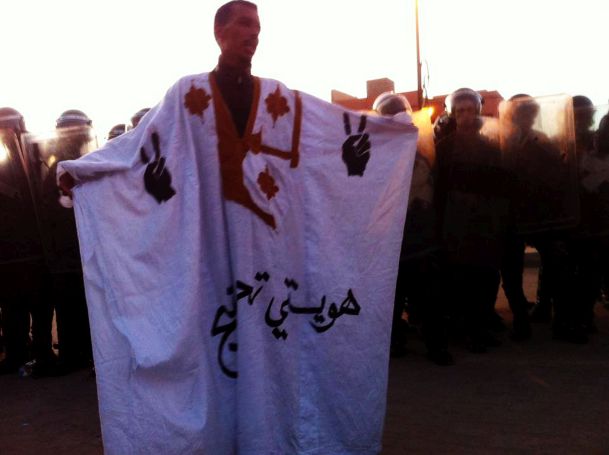
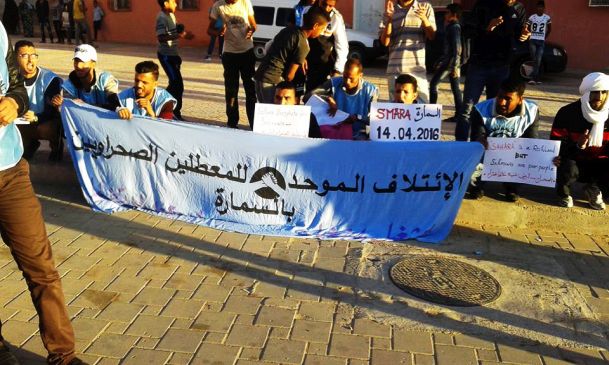
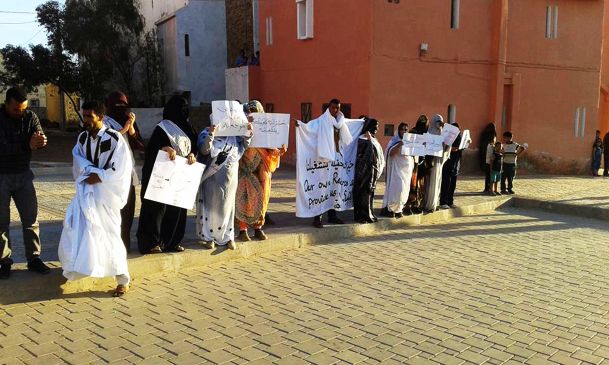
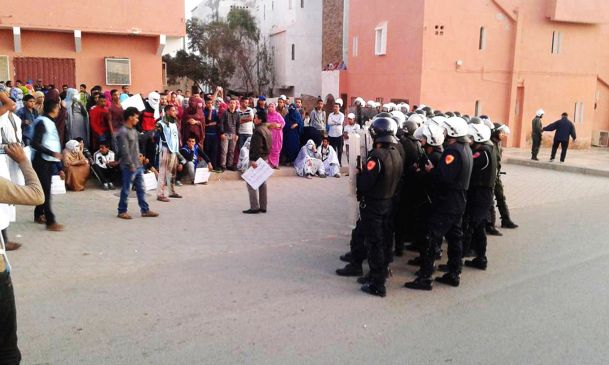
Morocco allocates land in occupied Western Sahara to green hydrogen investors
Morocco’s ambitions to become a global green hydrogen powerhouse are accelerating. Yet, Rabat is allocating land in a territory it does not legally own.
US eyes minerals in occupied Western Sahara
Seeking to position itself as a key supplier of strategic minerals for Western powers, Morocco has signed a new agreement with the United States that covers Western Sahara’s waters and the critical minerals harboured there.
TAQA-Moeve obtains land in occupied Western Sahara
Morocco’s push for green hydrogen has taken a decisive step forward - on territory it does not legally own.
EU-Morocco Statement: autonomy without self-determination, law without lawfulness
A joint statement that came out of last week’s EU-Morocco Association Council asks readers to believe in a fiction: that an undefined autonomy plan imposed by an occupying power can satisfy the right to self-determination, and that respect for international law can coexist with the systematic ignoring of the EU’s own highest court.



